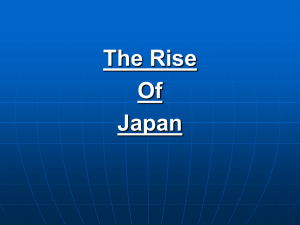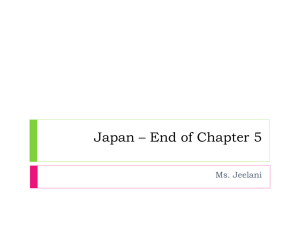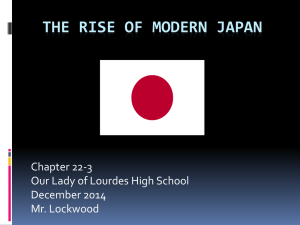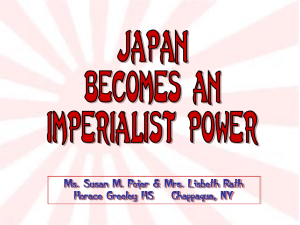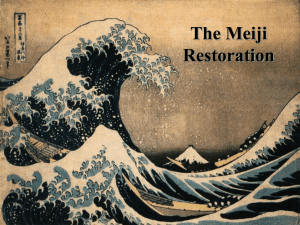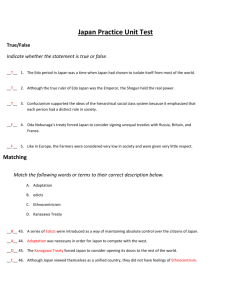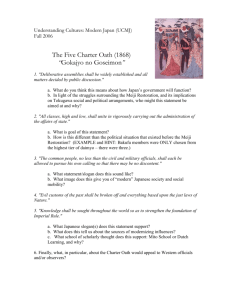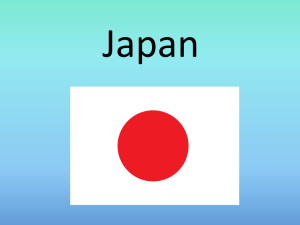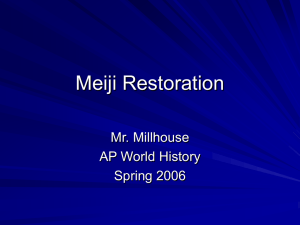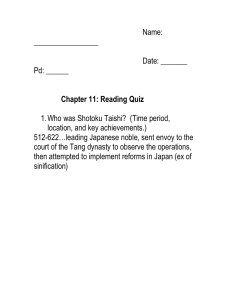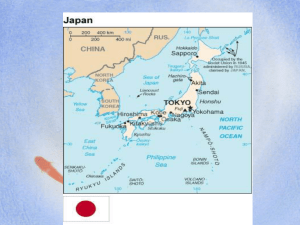How Did Japan Respond to the Crisis?
advertisement
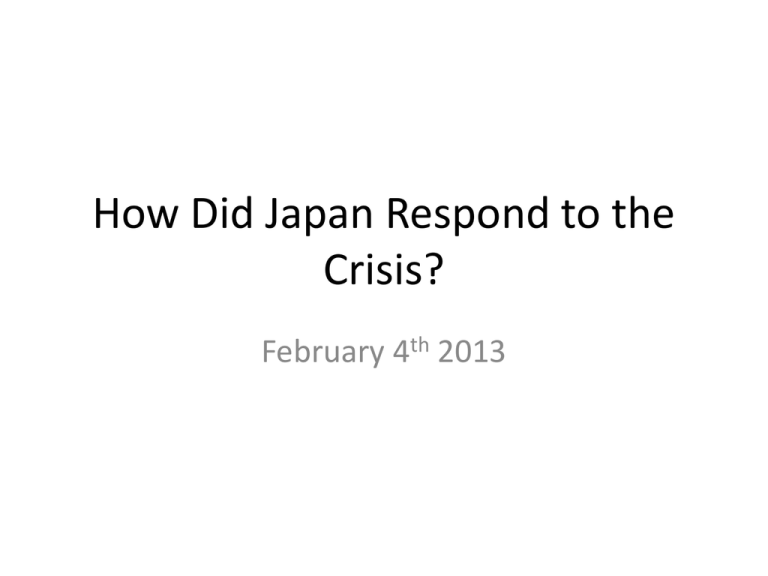
How Did Japan Respond to the Crisis? February 4th 2013 Different points of view • One group thought that Japan could not remain isolated but did not want to be taken over by another country, they felt they needed Western technologies to become powerful and independent. • Another group believed Japan should remain isolated, all foreigners should be killed. They believe “barbarians” would expose Japanese to different way of living that would undermine the system Civil Unrest • In the mid 1800’s there was unrest in the country. • People began to question the taxes they were forced to pay. • People began to question the government’s decisions and blamed the government for the unrest. • Samurai began to support the emperor and not the shogun. • Some did not fear Westerners and used the issue of foreign presence to fuel contempt for the Bakufu • The critics of the Shogun wanted to create a new government headed by the Emperor. • They began increasing military armaments and even purchased weapons and ships from the West to fight the shogun’s troops. • The political situation was becoming chaotic. In 1867, samurai from Tosa convinced the shogun to resign and take a leading role in a new government. • Meiji was proclaimed the Emperor • The shogun responded with military attack but were defeated in 1869. • Edo was renamed Tokyo, meaning “Eastern Capital”. How did the Political System Change? • The Meiji leaders used the creation story to their advantage when they declared the emperor sacred and inviolable. • They tried to appeal to Japanese traditionalism and build loyalty by using the young emperor as a symbol of unity. The Charter Oath • In April 1868, Emperor Meiji signed the Charter Oath that outlined the goals of the new regime. • This charter showed change in all 3 elements of Worldview political and economic systems, social systems and culture.

